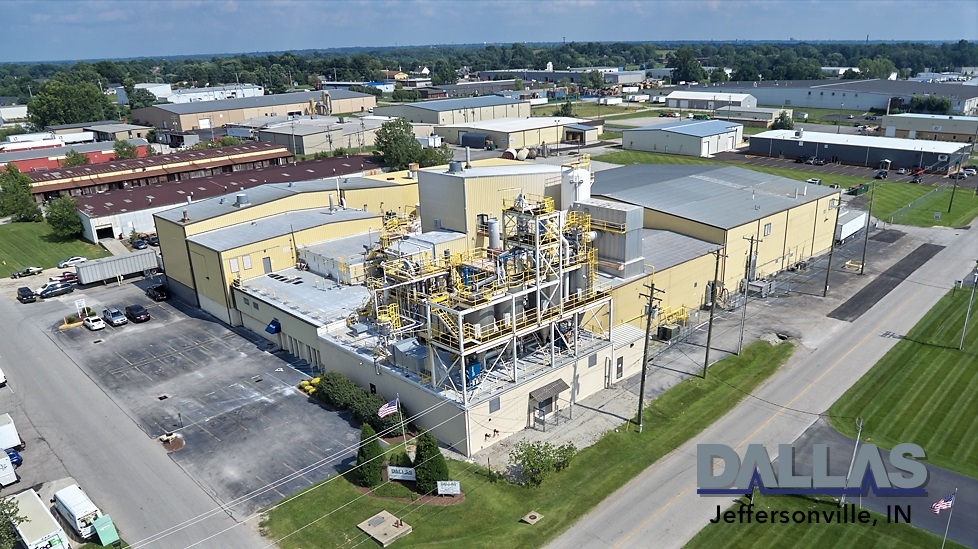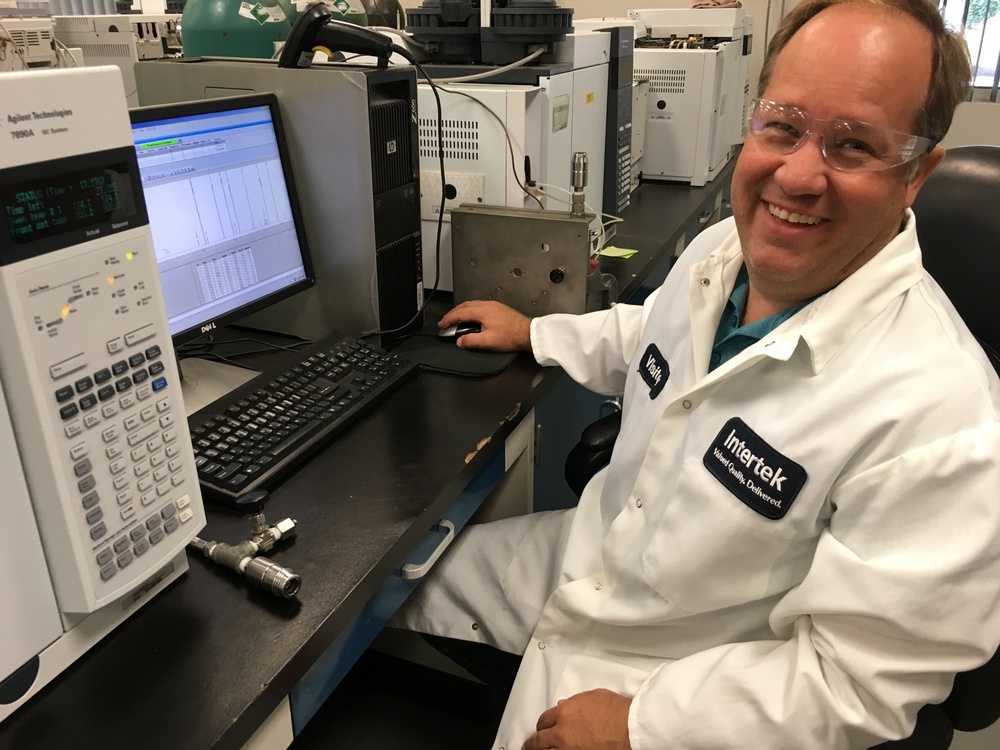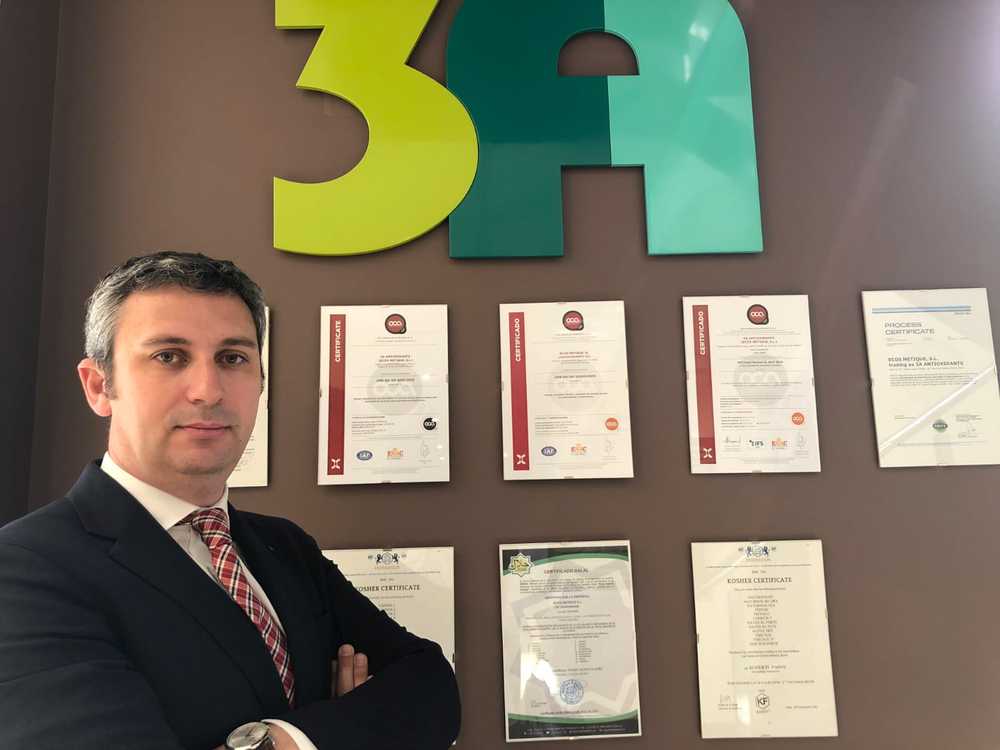Fuel Quality Focus





August 10, 2018
BY Ron Kotrba
The Dallas Group
The Dallas Group of America Inc. coined the term “dry wash” and introduced its synthetic magnesium silicate D-SOL D series products under the Magnesol trademark in 2002. It was the first adsorbent used in the biodiesel market. In the mid-to-late 2000s, the company introduced its D-SOL R series to purify various feedstocks.
Steve Sullivan, sales and service director for the Americas, says strong activity in the biodiesel space is fueling innovation. “Existing plants continue to push capacity limits,” he says, adding this has driven interest in D-SOL products for feedstock pretreatment and biodiesel posttreatment. “Pretreatment provides a cleaner feed for improved reaction efficiency as well as a cleaner biodiesel product. Posttreatment can allow plants to run higher temperatures and rates through their filters, easing a potential bottleneck.”
As producers ramp up production, bottlenecks arise. “A bottleneck may occur with filtration, especially if chillers are used to cold filter in order to pass the cold soak filtration test,” Sullivan says. “Rather than invest more capital on equipment, filtration rates can be increased by filtering hot with D-SOL.” Reaction rates can be increased by improving feedstock quality with pretreatment. “Furthermore,” Sullivan says, “water usage or water-wash capacity can be augmented or even replaced with D-SOL.”
George Hicks, manager of innovation and development, says, “Continued growth and activity in the industry is exciting and justifies continued investment in product development.” One production trend Hicks sees is producers working to reduce costs while increasing plant throughput. In addition, the use of lower-quality feedstock and feedstock blending have become increasingly popular. “With that, customers are utilizing D-SOL products to aid in cleaning up these lower-quality feedstocks and their finished biodiesel,” Hicks says. Sullivan adds, “Regardless of the feed, we have a D-SOL solution to clean and upgrade the quality of a wide range of feedstocks—to improve process efficiencies and produce on-spec biodiesel.”
As producers focus on reducing costs by utilizing lower-quality feedstocks, Hicks says there is much to be learned. “Contaminants can vary immensely in the feedstocks,” he says. “Knowing what type of contaminants are present is critical. With this knowledge you can tell what effects it can have on biodiesel quality and production. Having the right material to remove those impurities is a must in order to meet the demand to drive costs down and make a profit.”
Dallas Group possesses a suite of products, including a patented process, designed to selectively address specific needs. “We recommend contacting us to discuss your specific situation and what you need to accomplish,” Sullivan says. “With that information, sample analysis and lab testing, we can design a solution that best meets our customers’ needs.”
The company continues to innovate and is conducting commercial trials with a new technology that, compared to dry-wash processes, can significantly reduce costs and waste while increasing reliability. “We are excited about the results thus far,” Sullivan says, “and we feel this can provide a step-change for the industry.”
EcosMetique
EcosMetique S.L., trading as 3A-Antioxidants, has been in the antioxidants business for 10 years. The company focuses on antioxidants and preservatives for the feed, food and industrial sectors. Company Manager Sergio López says it entered the biodiesel space when developing antioxidants for animal fats and plant oils.
Just recently, the company’s OXIBIOL biodiesel antioxidant achieved billing on AGQM’s latest “no-harm” list, a prestigious accomplishment for additives. “It was important because this guarantees our customers that the antioxidant will not leave residues in the biodiesel that could damage engines,” López says. “This opened the doors for all biodiesel producers and we competed on equal terms with our competitors. AGQM only does two tests a year consisting of two phases.” Phase I measures stability increases, additive flash point, ash content, interactions between the additive and biodiesel, engine oil compatibility, filtration and efficiency compared to BHT. Phase II involves a nozzle fouling test. “The process was quite slow,” López says.
The OXIBIOL additive contains an oxygen molecule sequestrant, a free radical stabilizer and a metal chelating agent. The formulation stabilizes the unsaturated fraction of biodiesel. “It is a formulation with a defined concentration based on a standard biodiesel production process,” López says, adding that the customer’s mixing must be taken into account. “The product must be added once the biodiesel has been manufactured, always taking advantage of the transfer to the storage tanks to enable homogenization. The ideal situation would be to have a mixer to incorporate the additive. We have automatic equipment to dose the antioxidant.”
The amount of OXIBIOL may vary depending on the type of biodiesel in order to obtain a better homogeneity, López says. “In this sense, the same amount of OXIBIOL is not always required to stabilize the biodiesel. For small amounts of the additive, it may be necessary to dilute it to homogenize better, increasing its yield.” Dosing rates can range between 75 and 200 grams per ton of biodiesel, depending on feedstock and other factors. “They are not very high amounts,” López says. OXIBIOL is liquid at room temperature with a melting point lower than minus 20 degrees Celsius, which, according to López, can help reduce certain energy costs, as well as precipitation problems.
EcosMetique offers technical and advisory services to its clients. “We can analyze the oxidation and stability of raw materials, because it’s important in order to stabilize the final product,” López says. “We also analyze the biodiesel fuel.” The company analyzes many other parameters, including fatty acid profile, iodine index, CFPP and more. “We also advise on the ideal dosing point and, of course, the best dosage of the antioxidant,” he says. “Likewise, EcosMetique is focused on the search for new molecules that allow increasing the performance of the product, as well as ensuring other parameters, such as the corrosion test on copper foil according to [prevailing standards].”
Intertek Caleb Brett
Founded in 1885 by Caleb Brett in the U.K., Intertek Caleb Brett delivers assurance, testing, inspection and certification services to refiners, producers, blenders, distributors, consumers and research institutes around the world. Scott Blakely, director of lab services for North America, says the company has more than 500 laboratories in 100 countries. “Intertek is an independent lab network that provides third-party quantity and quality services,” Blakely says. “We participate in numerous technical committees, including ASTM, ISO and EN.”
Intertek provides a breadth of commodity fuel testing, including gasoline, diesel and jet fuel, and renewable fuels such as biodiesel and ethanol. Its labs can run both octane and cetane tests and perform full certifications. “We certify biodiesel to the ASTM D6751 spec, so that’s part of our service for custody transfers,” Blakely says. The company provides quality certifications for fuel, such as certificates of analysis, along with quantity inspections for imports or commodity exchanges. “We are customs-accredited for imports,” Blakely adds.
Intertek’s labs are both ISO 9001 and ISO/IEC 17205 accredited, and they are qualified to certify to the BQ-9000 requirements for biodiesel beyond testing to D6751.
“We got into biodiesel in the early stages,” Blakely says, “and in 2005 we went all in and pushed our biodiesel testing capability across our network. We’ve seen specifications continue to tighten and quality increase after producers realize they can actually meet the new specs, whether it’s lower monoglycerides or significantly lower cold soak time. We’ve seen manufacturers meet those without issue.”
Blakely and Intertek were part of the original industry training of the cold soak filtration test developed a decade ago to combat cold flow issues that plagued the biodiesel industry in the mid- to late 2000s. Blakely says now ASTM is working to approve a new method that can take the cold soak test from one to three days down to just 20 minutes. “Round robins are being formed to get the test method approved,” Blakely says. “It may take another year but it’s progressing well.”
Intertek Caleb Brett is most often engaged by those in the biodiesel industry to run a full slate of tests for certification testing. “Most parameters pass easily—flashpoint, cetane, those are typically not a problem,” Blakely says. For laboratories, he says, cold soak is perhaps the most challenging procedure due to the long testing time, but others such as the free and total glycerin test are also difficult. “The standards themselves are unstable, but the method has come a long way—especially for monoglyceride content,” he says. “Cetane number is still a high-cost test to run because it uses a very expensive engine.”
When people hear the company name Intertek, Blakely says he wants people to think of quality service and independent results. “One of our corporate mottos is precision, pace and passion,” he says. “The best quality fast, and the best service.”
Advertisement
Advertisement
Advertisement
Advertisement
Related Stories
Broco Energy on July 17 announced a new partnership with the Massachusetts Port Authority (Massport) to deliver and transition Massport's fuel tanks to renewable diesel across its various facilities.
Shell Aviation, Accenture, and Amex GBT on July 10 announced Avelia is in the process of evolving to an industry solution with independent data hosting and a multi-supplier model helping users access the GHG benefits of SAF.
The U.S EPA on July 17 released data showing more than 1.9 billion RINs were generated under the RFS during June, down 11% when compared to the same month of last year. Total RIN generation for the first half of 2025 reached 11.17 billion.
The U.S. EPA on July 17 published updated small refinery exemption (SRE) data, reporting that six new SRE petitions have been filed under the RFS during the past month. A total of 195 SRE petitions are now pending.
European biodiesel producer Greenergy on July 10 confirmed plans to shut down its biodiesel plant in Immingham, Lincolnshire, U.K. The company temporarily suspended operations at the facility earlier this year.
Upcoming Events










